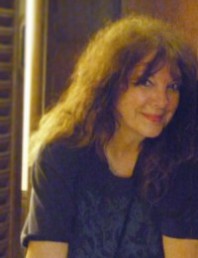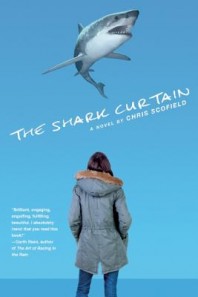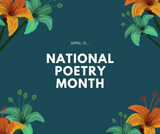 I’m in love with Lily Asher, the troubled teenage heroine of my novel, The Shark Curtain. Lily is an iconoclast, a survivor, a seeker. She’s also at the heart of fantasies that alternately isolate and bewitch her. Ironically, art, ghosts, the love of her dysfunctional family, and the friendship of a needy annoying Jesus Christ are the only things that keep her tethered to planet Earth. She’s often a stranger to herself. Who hasn’t thought that about themselves sometime—minus the Jesus and ghost part, of course?
I’m in love with Lily Asher, the troubled teenage heroine of my novel, The Shark Curtain. Lily is an iconoclast, a survivor, a seeker. She’s also at the heart of fantasies that alternately isolate and bewitch her. Ironically, art, ghosts, the love of her dysfunctional family, and the friendship of a needy annoying Jesus Christ are the only things that keep her tethered to planet Earth. She’s often a stranger to herself. Who hasn’t thought that about themselves sometime—minus the Jesus and ghost part, of course?
I was once a teenage train wreck— shy, smart, stubborn and self-sabotaging. Writing and art, with their beeline to befriending the unconscious, were then (and remain to this day) the perfect calling for someone like me. And Lily. There I go again.
Since Shark has been published and I’m asked to write about Lily or the bigger themes in the book, my language is changing, the references becoming more inclusive, and Lily and I even more akin. Does that happen to everyone who writes? How would I find out, and whom would I ask— the author or the author’s subject? The more I write, the bigger the page grows. The more questions I ask, the more there are to ask.

“Brilliant, engaging, engulfing, fulfilling, beautiful… Chris Scofield’s fantastically fantastic novel pins the tail on the donkey with a pneumatic nail gun — I absolutely insist that you read this book!” – Garth Stein
Writing is an intoxicating conceit. It’s a strange one, too. I mean, my own background is closer to the tales of urban woe spun by Talese, Cheever and Updike. Is that why, as a writer, I run-not-walk to the nearest weirdo-as-hero? A teacher I worked with years ago, always encouraged his students to embrace, er, exercise, their personal “horses”— those pesky themes you always end up writing about, one way or the other. Give them rein, he said, and encourage them to take you where they will; they’re the things you feel strongest about, after all. A quick perusal of my short stories is an easy way to find my horses, my themes, my “issues”: freedom, death, art, alchemy, forgiveness. That’s what keeps me up at night, what makes me angry, what gives me hope and leads me through the house to my computer where the weirdos-as-heroes hide in the shadows of my leafy screensaver.
Outsiders, oddballs and nerds, are my literary saviors—the misunderstood, the freaks, the possessed, the dreamers. I’ve always loved “Beauty and the Beast” and “Frankenstein.” One way or the other, the monsters persevere in the end. Who would we be if our outsides actually mirrored our insides? For years I received too much attention for my looks while inside I was a nasty nest of contradictions—half cornered animal, half Barney Fife. Not surprisingly, Lily feels the same.
I dreamt of her the other night. She sat on a folded chair in the back of a large room—not unlike the gym where my first junior high school dance was held. Nervous boys and girls wandered in and out of frame. She smiled at me, awkwardly of course, and I responded in kind. We both blushed, as if one of us had asked the other to dance. Or maybe it was in recognition of the same question: What were we doing there? In dreamtime or real time, it’s a mystery. I can’t imagine a place less suited to either of us. Why weren’t we home in our rooms drawing, reading, dreaming? Writing prayers to imaginary gods, designing tree houses, starting a book on the top of page thirty-one and reading every fifth sentence on each page that’s a multiple of three after? Across the bed, through towering tilts of clean laundry, Lily and I wiggle our caterpillar eyebrows at each other—weeks from flying away with our DNA on tiny butterfly feet, we wiggle our eyebrows again.
I’ve missed Lily since this publishing hubbub began. Where has she been? Where have WE been? Her world or mine? The love is strong. The definitions blur.
Chris Scofield is a writer, teacher, traveler and cellist from Eugene. For more about the author, her heroine Lily, and their novel, The Shark Curtain, here’s a great write-up in The Register-Guard by our own Brian Juenemann.


